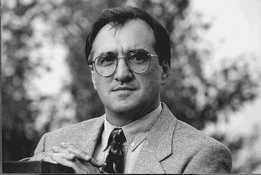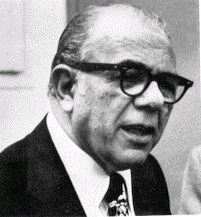Related Topics
Outlaws: Crime in Philadelphia
Even the criminals, the courts and the prisons of this town have a Philadelphia distinctiveness. The underworld has its own version of history.
Literary Philadelphia
Literary
Blood and Honor: The Philadelphia Mafia, Lately

|
| Blood and Honor |
After two decades of seemingly endless dominance of Philadelphia headlines by the Mafia, the underworld has been absent from the news in the first decade of the 21st century. That's very welcome to everybody including the Mafia itself, and there are three main popular explanations. First, after 27 informal mob executions and four dozen convictions with lengthy prison terms, perhaps the mob has been eradicated. Or, possibly the immigrant population has been assimilated, now looking to quieter occupations for a source of income. And finally, maybe the mob has just decided to lie low while tax-hungry politicians enact enabling legislation for legal gambling casinos for the gullible public since the main argument against casinos is they attract crime. The histories of Atlantic City and Las Vegas certainly suggest organized crime has not yet abandoned casinos.

|
| George Anastasia |
George Anastasia's book Blood and Honor relates twenty years following the assassination of Angelo Bruno in 1980, averaging a murder or a prison sentence every three pages and leaving the reader with the impression of constant warfare in South Philadelphia. The book is pretty hair-raising, but after all, there is not much to talk about in a crime family except crime. To run through a brief overview of 27 assassinations and 36 major convictions is to leave a violent image of South Philadelphia. However, to say there were two to four assassinations per year plus three or four criminal trials softens that impact. The violence is appalling because it went on for so long. To note that Philadelphia like all major American cities its size, averages about three hundred murders a year puts mob violence in perspective. To be serious about eliminating homicide, you ought first eliminate "domestic violence". After that, you should go after street gangs and their focus on distributing recreational drugs.
Whether it was a struggle for control of Atlantic City casinos, a policy dispute over whether to get involved in illegal drugs, or simply a matter of disputed succession to control of the mob, is not now clear to the law-abiding community. What seems accepted interpretation is that matters heated up a lot after Angelo Bruno was assassinated. Somebody wanted his job, and that somebody wanted to run the organization differently. it's a situation quite familiar to CEOs of corporations, Kings and Emperors, and even editors of newspapers. What distinguishes organized crime families is the violence of their methods for dealing with succession issues. What emerges in this particular little world is that Nicodemo Scarfo established himself as the new Don of the Philadelphia Mafia by 1988, and the bitterness of this succession struggle induced six or ten insider members of the mob to become police informants to get revenge. The murders and convictions which make up this twenty-year period of time can be roughly divided into the initial struggle for control, the revenge of the losers, and the subsequent assassination of traitors. Even after inactivating nearly a hundred insiders, at least twice that number of "made" members and associates were unaffected directly. It's anyone's guess whether a defeat of this magnitude is enough to eliminate the organization, or whether it merely imposed a truce, during which the mob will heal its wounds and then make a comeback.

|
| Angelo Bruno |
An underground organization, whether in Philadelphia or Afghanistan, cannot hide effectively without the cooperation of honest citizens in the neighborhood. For many years, toleration was secured by keeping the streets safe from marauders belonging to other immigrant groups, and by collecting whatever debts the courts would not honor. The gray area involved such illegal activities as bootlegging in which the rest of the community participated without much sense of guilt. The Mafia was effectively a private police force for unsanctioned activity, operating within a neighborhood not fully in accord with prevailing attitudes. It seems to have been the genius of Angelo Bruno to realize that loan-sharking was the only permanently profitable component of this formula, and that loan sharking largely depended on gambling to create desperate debtors. Just about every other criminal activity attracted too much police attention to survive because the dominant society approved of suppression. Bruno's assassination seems to have been triggered by rebels who disagreed with his analysis. Perhaps they were right and the mob had been missing a big profit opportunity in the drug trade. Perhaps they were wrong and turned the legitimate community against them to the point where extermination was provoked.
Keep tuned. The outcome of this little debate could emerge suddenly and spectacularly. Or more decades of peace will pass silently, in which case Angelo will eventually be deemed correct.
REFERENCES
| Blood and Honor: Inside the Scarfo Mob, the Mafia's Most Violent Family George Anastasia ISBN-13: 978-0940159860 | Amazon |
| Before Bruno: The History of the Philadelphia Mafia Book 2 C. A. Morello ISBN: 978-0967733425 | Amazon |
| The Last Gangster George Anastasia ISBN-13: 978-0060544232 | Amazon |
| The Last Mouthpiece: The Man Who Dared to Defend the MobRobert F. Simone ISBN-13: 978-09401596932 | Amazon |
Originally published: Wednesday, September 16, 2009; most-recently modified: Wednesday, May 15, 2019